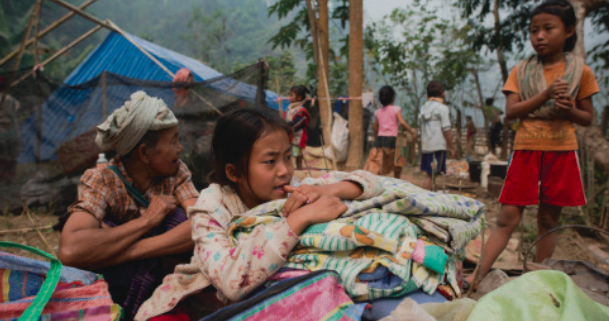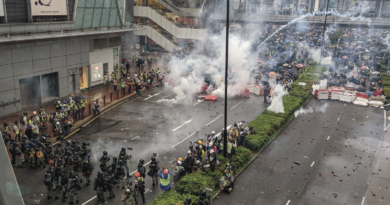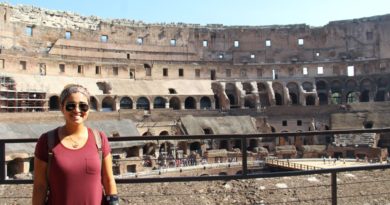Myanmar Refugees Most Affected By Ban
Late last week, President Trump’s planned deep cuts in refugee visas targeted towards six Muslim majority nations went into effect and the people most affected by it would be from Myanmar, according to an Associated Press analysis.
The order also includes a 55 percent reduction in refugee visa overall, from a planned 110,000 to 50,000 this year. This means, in some of the most desperate places in the world, 60,000 refugee visas are not going to be issued after all. An Associated Press analysis of the past 10 years of refugee data suggests that of these, the highest number of refugees comes from Myanmar, also known as Burma, and not from any of the six nations in the travel ban.
Tin, a Christian Burmese refugee, along with her husband and five children, has cleared years of refugee hurdles to come to the U.S. Of these include blood tests, interviews, DNA, fingerprints and background checks. Tin carries a single procession, a well-worn Bible, and keeps her phone charged for the U.S. Embassy call.
But the chances of that happening dropped substantially when President Trump’s 16-page revised travel ban went into effect recently. The travel ban bars new visas for people from the six Muslim- majority countries of Iran, Syria, Sudan, Somalia, Libya and Yemen and shuts down America’s refugee program through mid-July.
Thousands, like Tin and her family, are Christians who were persecuted in their native country. They expected to resettle before Sep. in the U.S., a place they consider home. More than 160,000 Burmese have settled in the U.S. in the past decade, more than any other group, accounting for nearly 25 percent of new U.S. refugees since 2007.
“America is really our fatherland in terms of religion,” said Tin, 38. “They sent their missionaries to our country and taught us to be Christians. And now we had to escape. All we want is to be safe.”
Under an authoritarian regime in a predominantly Buddhist Myanmar, Christians face religious and political discrimination. Tin and her community fled Chin state, where Human Rights Watch says more than 90 percent of the residents were adhering to the tenets of the American Baptist Church by 2009, which set them against a military campaign to elevate Buddhism above all other religions.
School Teacher Sang, 29, a Burmese refugee who learned English as a theology student, meticulously looked over a copy of Trump’s executive order and agreed that the U.S. needs to keep terrorists out.
“We are not terrorists, we are Christians,” Sang said. “We will never be a problem in the United States. We will get education, we will work hard. We only seek safe haven.”
Tim and Sang are among more than 100,000 Christian Burmese refugees forced to flee in recent years and live out of suitcases in abject poverty in Malaysia. Their kids cannot go to school and they risk deportation or detention if they try to report a crime.
Trump’s “Executive Order Protecting The Nation From Foreign Terrorist Entry Into The United States,” said lowering the cap is necessary to U.S. interests.
“The safety and security of the American people is our highest priority,” said a State Department official who provided a statement of condition of anonymity as he was not authorized to talk on the record about it.




